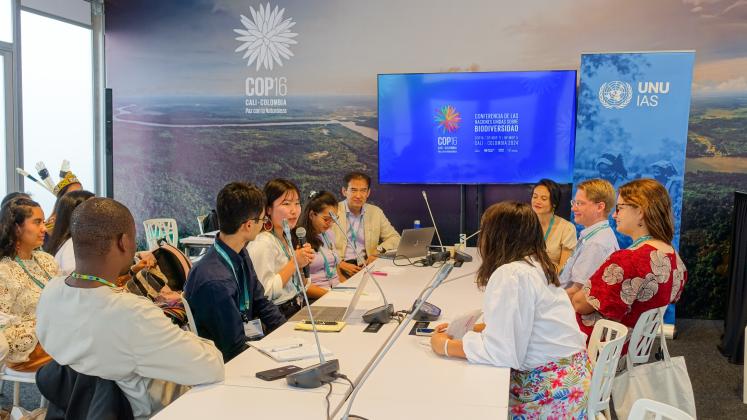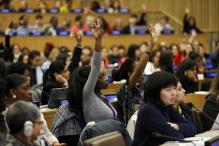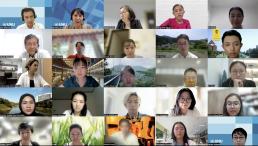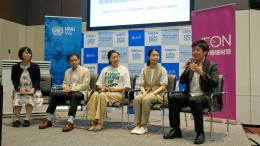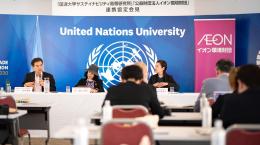On 30 October 2024, UNU-IAS co-organized a side event of the 2024 UN Biodiversity Conference (CBD COP16) on meaningful youth participation in implementing the Kunming-Montreal Global Biodiversity Framework (KMGBF). It featured youth representatives from the Global Youth Biodiversity Network (GYBN) and Global Youth MIDORI platform (GYM), a capacity development programme jointly launched by UNU-IAS and the AEON Environmental Foundation.
Opening the session, Yuan Yoshinaga (AEON Environmental Foundation) noted that the Foundation was the first of its kind in Japan to focus on the environment, and its activities included tree planting and environmental education for youth.
The first panel session was moderated by Sandra Lorena Gómez Ramírez (Consultant, UNU-IAS; UNU-IAS MSc graduate). Panelists shared their experiences and ideas to enhance meaningful participation in global decision-making processes. Winner of Best Performance Award at the GYM speech contest Shiho Ito (student, Global Studies Program, Akita International University) pointed out language barriers at international conferences, noting that interpretation services are often limited to select languages. She emphasized that youth should be treated as rightful participants in discussions and not labeled as immature or inexperienced.
Recipient of the Runner-Up Award at the GYM speech contest Taira Ishiguro (student, Graduate School of Agricultural and Life Sciences, the University of Tokyo) highlighted difficulties in finding entry points to engage with other youth groups involved in biodiversity conservation activities. He stressed that participation in COP16 through the GYM programme was an important first step in building global networks.
Kevin Lunzalu (Regional Co-coordinator, GYBN Africa) discussed challenges faced by African youth such as limited access to government-led biodiversity initiatives, and difficulties in scaling up youth projects due to complex financing systems. He addressed the disconnection among environmental conventions and the silos within climate and biodiversity youth networks, calling for stronger global collaboration.
The second panel discussion was moderated by Akio Takemoto (Head of Programme and Administration, UNU-IAS). Experts from government and NGOs discussed solutions for the challenges brought up by the youth panelists. Caren Johana Ardila Gómez (Youth and Children Liaison for the 2030 National Biodiversity Strategies and Action Plan (NBSAP) Update, Ministry of the Environment of Colombia) shared government initiatives for youth participation in its NBSAP development process.
Introducing GYBN as a mechanism supporting youth involvement in the CBD COPs, Christian Schwarzer (GYBN) highlighted capacity, finance, system and sustainability barriers in youth empowerment activities. He called for strengthening multi-stakeholder partnerships including the private sector.
Marie-Claire Graf (Co-Founder, Youth Negotiators Academy) highlighted a whole-of-society approach, emphasizing the importance of viewing multilateral systems as opportunities for change where youth can actively contribute.
Recognizing that navigating these systems can be difficult, Angela Patricia Rivera Galvis (Advisor, International Affairs and Climate Change, Ministry of the Environment of Colombia) emphasized the importance of enhancing synergies at the national policy level.
During Q&A, participants from Indigenous peoples groups called for increased support for Indigenous youth to enable their meaningful participation in global policymaking.
The event was co-organized by UNU-IAS and the AEON Environmental Foundation, and co-hosted by GYBN.

